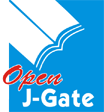Download Cover Page IJPSS_May_2020......
PARTICULAR
|
Page No.
|
 HRM practices and employees’ innovative work behavior-IWB An application of the AMO theory
HRM practices and employees’ innovative work behavior-IWB An application of the AMO theory
Phong T. Tran, Luan M. Pham, Phuong T. Do, Tuan A. Le
Abstract:
Aiming at examining the ideas od the AMO theory, the roles of autonomy, reward, training & development impact on IWB (Innovative Work Behavior) in a Vietnamese university. the results from SEM (structural equation modeling) support the hypotheses. A test based upon a sample of 413 university lectures in the southern of Vietnam reveals that reward has positive impacts on both Innovative Work Behavior and training & development. Besides, autonomy and training & development also underlie Innovative Work Behavior
Download full Length Paper......
|
1-7
|
 Strategies of increasing contraceptive prevalence implemented by nursing staff: Cross-sectional study in clinical base in the Karisimbi health zone, Provincial Division of health North Kivu, DRC
Strategies of increasing contraceptive prevalence implemented by nursing staff: Cross-sectional study in clinical base in the Karisimbi health zone, Provincial Division of health North Kivu, DRC
Lévis Kahandukya Nyavanda, Jane Mumma, KambaleKarafuli Leopold, Jean-Bosco KahindoMbeva
Abstract:
In the Democratic Republic of Congo, family planning is part of integrated health services. However, often policymakers and service providers are not taking family planning as their priority but focus their attention and resources on other health problems. The result is a 5.8 percent modern contraceptive prevalence rate in the country (although higher in Kinshasa where it is 14.1%).In addition, according to the magazine of the DSRP of the Republic. Democratic Congo on 8 and 9 March 2010 the health, the total fertility rate remains high at 6.3 in 2007 against 7.1 in 2001 and will remain always high for a number of years according to the estimated calculations of the projection of the fertility rate. The low use of contraceptive methods, particularly modern methods, can be mentioned as one of the factors that explain the high fertility in the country. The use of maternal health services seems to have significantly improved in recent years. However, there are still serious problems in the quality of services and the promotion of good governance in family planning program.
Download full Length Paper......
|
8-39
|
 Strategy to Improve Higher Education in Border area with special reference to Indo Myanmar, Moreh
Strategy to Improve Higher Education in Border area with special reference to Indo Myanmar, Moreh
Moirangthem Roshini
Abstract:
Education guides the society in promoting cultural values of an area, helps in shaping the behavior of its people and gives meaning to the existing traditions for its betterment, on the right direction. It helps in meeting national goals and aspirations of the country and its people. With education, we can preserve, protect and optimally utilize the resources of a particular area God has laden it with. It is an important aspect of human life since it uplifts a society and makes the people a vital tool in development of any country or state. The meaning of Development will find it difficult to be complete without the base provided by education. Good education policy can help promote awareness with regard to the potential offered by trade and commerce in a region, especially in a border town like Moreh where large volume of foreign trade is being carried out everyday. It becomes imperative for us to make the advantages offered by this trade by making it wellorganized and to function in a systematic way. Enhancing and maintaining quality in delivery of this service becomes important for improving the state of economy and prosperity in the region, and for Manipur and India at large. With Moreh as a trading center in the international boundary line between India and Myanmar, and considering the huge yet to be fully tapped potential for trade in the offering with the South-East Asian nations, the existence of limited number of higher education courses in the border town necessitates a rethink and, therefore, there lies the importance for improving the system of education in the border area.
Download full Length Paper......
|
40-49
|
 STUDY ON TECHNICAL COMMUNITY'S DATA DEMANDS AND
INFORMATION-SEEKING BEHAVIOR IN THE DIGITAL WORLD
STUDY ON TECHNICAL COMMUNITY'S DATA DEMANDS AND
INFORMATION-SEEKING BEHAVIOR IN THE DIGITAL WORLD
ACHALA BHATTACHARJEE, Dr. MANISH MUDGAL
|
50-61
|
 Status of Higher Education in rural areas
Status of Higher Education in rural areas
Dr. Alka
|
62-67
|

 Generate E-Certificate
Generate E-Certificate












